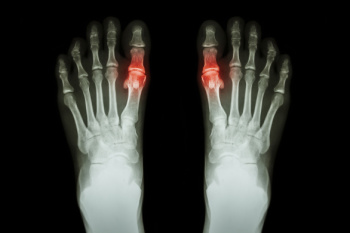

Pickleball’s dynamic nature makes it a popular choice for aging athletes, but it also increases the risk of lower extremity injuries. These injuries are predominantly musculature, affecting tendons, ligaments, and muscles due to the rapid, repetitive movements involved in gameplay. Sports-specific factors like improper equipment, uneven court surfaces, or poor technique contribute significantly to injury risks. Wearing pickleball-specific shoes designed for lateral support and shock absorption can reduce strain on the ankles and knees. Playing on well-maintained courts minimizes trip hazards, while mastering proper techniques, such as turning instead of backpedaling, can prevent unnecessary stress on joints and muscles. Warm-ups and regular strength training further protect aging bodies, improving flexibility and resilience. If you have sustained an injury from playing pickleball that persists or limits your mobility, it is suggested that you contact a podiatrist for prompt care so you can stay active while minimizing risks.
Proper foot care is something many older adults forget to consider. If you have any concerns about your feet and ankles, contact Dr. Stephan J. LaPointe from Georgia Foot & Ankle Specialists . Our doctor can provide the care you need to keep you pain-free and on your feet.
The Elderly and Their Feet
As we age we start to notice many changes in our body, but the elder population may not notice them right away. Medical conditions may prevent the elderly to take notice of their foot health right away. Poor vision is a lead contributor to not taking action for the elderly.
Common Conditions
Susceptible Infections
Diabetes and poor circulation can cause general loss of sensitivity over the years, turning a simple cut into a serious issue.
If you have any questions please feel free to contact our office located in Rome, GA . We offer the newest diagnostic and treatment technologies for all your foot and ankle needs.

Foot and ankle pain can range from mild discomfort to a serious issue that disrupts daily life. Persistent or worsening foot pain should not be ignored, as it may indicate conditions like arthritis, tendon injuries, or even nerve damage. For example, arthritis in the foot or ankle often causes stiffness and swelling, which limits mobility and affects daily activities. Tendon injuries or conditions like acquired flatfoot can result in pain on the inside of the foot or ankle, often becoming worse with activity. Another common concern is heel pain, stemming from a heel spur, which is a calcium deposit that can irritate nearby tissues. Pain in the big toe can severely affect the way you walk, leading to harmful gait and posture changes. A podiatrist is skilled in diagnosing and managing foot, toe, and ankle-related conditions. Treatment solutions may include custom orthotics, injections, or, when necessary, surgery. If you have foot, toe, or ankle pain, it is suggested that you schedule an appointment with a podiatrist for an exam and diagnosis.
Foot Pain
Foot pain can be extremely painful and debilitating. If you have a foot pain, consult with Dr. Stephan J. LaPointe from Georgia Foot & Ankle Specialists . Our doctor will assess your condition and provide you with quality foot and ankle treatment.
Causes
Foot pain is a very broad condition that could be caused by one or more ailments. The most common include:
Diagnosis
To figure out the cause of foot pain, podiatrists utilize several different methods. This can range from simple visual inspections and sensation tests to X-rays and MRI scans. Prior medical history, family medical history, and any recent physical traumatic events will all be taken into consideration for a proper diagnosis.
Treatment
Treatment depends upon the cause of the foot pain. Whether it is resting, staying off the foot, or having surgery; podiatrists have a number of treatment options available for foot pain.
If you have any questions, please feel free to contact our office located in Rome, GA . We offer the newest diagnostic and treatment technologies for all your foot care needs.

Wearing the right shoes is important for success and injury prevention in pickleball. Unlike generic sneakers, pickleball-specific shoes are designed to handle the sport’s quick lateral movements, sudden stops, and directional changes. These shoes feature reinforced soles for better grip and stability, reducing the risk of slipping or rolling an ankle. Fit is equally important. Shoes that are too tight can cause discomfort or bunions, while loose-fitting shoes increase the chance of blisters or instability. Look for a snug fit that allows your toes to move freely and provides adequate arch support. Cushioning is essential to absorb shock and reduce strain on your feet and joints. If you experience persistent foot or ankle pain while playing pickleball, it is suggested that you consult a podiatrist for expert advice and solutions to keep you active and pain-free on the court.
Sports related foot and ankle injuries require proper treatment before players can go back to their regular routines. For more information, contact Dr. Stephan J. LaPointe of Georgia Foot & Ankle Specialists . Our doctor can provide the care you need to keep you pain-free and on your feet.
Sports Related Foot and Ankle Injuries
Foot and ankle injuries are a common occurrence when it comes to athletes of any sport. While many athletes dismiss the initial aches and pains, the truth is that ignoring potential foot and ankle injuries can lead to serious problems. As athletes continue to place pressure and strain the area further, a mild injury can turn into something as serious as a rupture and may lead to a permanent disability. There are many factors that contribute to sports related foot and ankle injuries, which include failure to warm up properly, not providing support or wearing bad footwear. Common injuries and conditions athletes face, including:
Sports related injuries are commonly treated using the RICE method. This includes rest, applying ice to the injured area, compression and elevating the ankle. More serious sprains and injuries may require surgery, which could include arthroscopic and reconstructive surgery. Rehabilitation and therapy may also be required in order to get any recovering athlete to become fully functional again. Any unusual aches and pains an athlete sustains must be evaluated by a licensed, reputable medical professional.
If you have any questions please feel free to contact our office located in Rome, GA . We offer the newest diagnostic and treatment technologies for all your foot and ankle needs.

Gout is a type of arthritis caused by the buildup of uric acid crystals in the joints, leading to intense pain and inflammation. This condition typically affects the big toe but can involve other joints as well. Uric acid is a waste product that the body normally eliminates, but when it accumulates in excessive amounts, it can form sharp crystals that irritate the surrounding tissues. Podiatrists treat gout by first diagnosing the condition through physical exams and sometimes tests to measure uric acid levels. Treatment often involves medications to reduce uric acid levels, manage pain, and decrease inflammation. Podiatrists may also recommend lifestyle changes, such as dietary adjustments and weight management, to help prevent future flare-ups. Wearing supportive footwear and custom orthotics can also assist in alleviating pressure on the affected joints, promoting healing and comfort. If you have had one or more bouts of gout, it is strongly suggested that you are under the care of a podiatrist who can effectively treat and manage this condition.
Gout is a painful condition that can be treated. If you are seeking treatment, contact Dr. Stephan J. LaPointe from Georgia Foot & Ankle Specialists . Our doctor will treat your foot and ankle needs.
What Is Gout?
Gout is a form of arthritis that is characterized by sudden, severe attacks of pain, redness, and tenderness in the joints. The condition usually affects the joint at the base of the big toe. A gout attack can occur at any random time, such as the middle of the night while you are asleep.
Symptoms
Risk Factors
Prior to visiting your podiatrist to receive treatment for gout, there are a few things you should do beforehand. If you have gout you should write down your symptoms--including when they started and how often you experience them, important medical information you may have, and any questions you may have. Writing down these three things will help your podiatrist in assessing your specific situation so that he or she may provide the best route of treatment for you.
If you have any questions, please feel free to contact our office located in Rome, GA . We offer the newest diagnostic and treatment technologies for all your foot care needs.

Swelling in the feet and ankles can be a sign of chronic venous insufficiency, or CVI, or heart failure, both of which affect circulation and fluid balance. CVI occurs when the veins in the legs cannot efficiently return blood to the heart, causing blood to pool, resulting in swelling, varicose veins, and pain. Heart failure, on the other hand, leads to fluid buildup throughout the body, including the feet, due to the heart's inability to pump blood effectively. Common symptoms of both conditions include swelling, heaviness, and discomfort in the feet and ankles, often worsened by prolonged standing or inactivity. Treatment for CVI may involve compression stockings, lifestyle changes, and medications, while heart failure may require managing underlying cardiovascular health. A podiatrist can play a critical role in managing foot symptoms associated with these conditions by recommending proper footwear, compression therapy, and providing guidance on exercises to improve circulation. If you experience persistent foot swelling, it is suggested that you schedule an appointment with a podiatrist for a thorough evaluation and personalized care plan.
Swollen feet can be a sign of an underlying condition. If you have any concerns, contact Dr. Stephan J. LaPointe of Georgia Foot & Ankle Specialists . Our doctor can provide the care you need to keep you pain-free and on your feet.
Swollen feet are a common ailment among pregnant women and people who stand or sit for extended periods. Aging may increase the possibility of swollen feet and patients who are obese often notice when their feet are swelling too. There may be medical reasons why swollen feet occur:
Swollen feet can also be caused by bone and tendon conditions, including fractures, arthritis, and tendinitis. Additionally, there may be skin and toenail conditions and an infection may cause the feet to swell. Patients who take medicine to treat high blood pressure may be prone to getting swollen feet.
Many patients elevate their feet to help relieve the swelling and this is generally a temporary remedy. When a podiatrist is consulted the reason behind the swelling can be uncovered and subsequently treated.
If you have any questions please feel free to contact our office located in Rome, GA . We offer the newest diagnostic tools and technology to treat your foot and ankle needs.